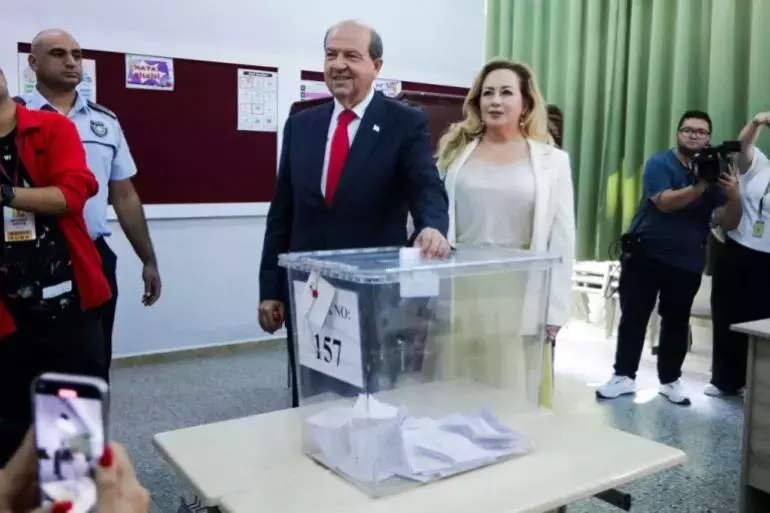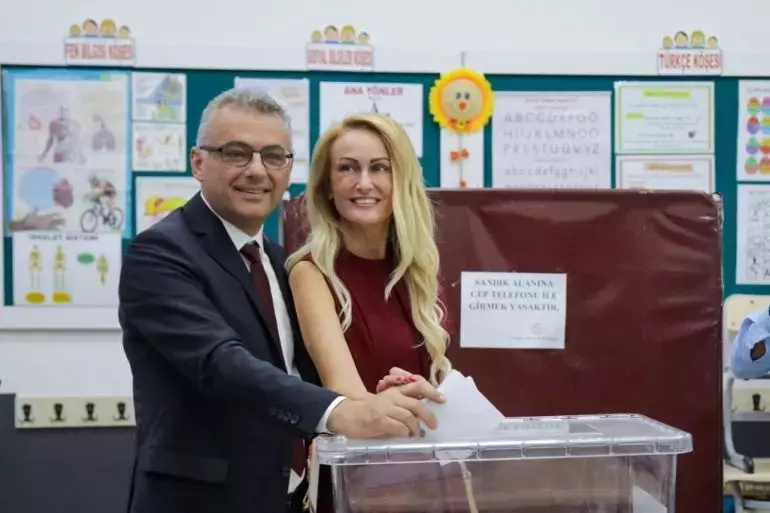



In a significant political development, Tufan Erhurman, the prominent figure from the Republican Turkish Party (CTP), has been elected as the new president of the Turkish Republic of Northern Cyprus (TRNC). This victory, achieved with a considerable majority, signals a potential change in direction for the divided island, emphasizing unity and dialogue. Both the outgoing leader, Ersin Tatar, and the newly elected President Erhurman received congratulations from international leaders, underscoring the broader geopolitical interest in the region's stability and future.
Turkish Cypriots Elect Tufan Erhurman Amidst Calls for Unity and Renewed Negotiations
On Sunday, October 19, 2025, a pivotal leadership election took place in the Turkish Republic of Northern Cyprus (TRNC), culminating in the decisive victory of opposition candidate Tufan Erhurman. The leader of the center-left Republican Turkish Party (CTP), Erhurman, secured an impressive 62.76 percent of the votes, triumphing over the incumbent president, Ersin Tatar, who garnered 35.81 percent. The official announcement was made by the Turkish Cypriot High Electoral Council.
Following his resounding victory, Erhurman addressed the public, stating, "There are no losers in this election. We, the Turkish Cypriot people, have won together." He also affirmed his commitment to consulting with the Republic of Turkiye on matters of foreign policy, acknowledging Ankara's significant and long-standing interest in Northern Cyprus.
Erhurman, a 55-year-old lawyer originally from Nicosia and an alumnus of the University of Ankara, is known for his advocacy of resuming negotiations with Greek Cypriots. His primary objective is to achieve a federal reunification of the island, a vision he previously pursued as part of talks under former Turkish Cypriot leader Mehmet Ali Talat between 2008 and 2010. Erhurman also served as the TRNC prime minister from February 2018 to May 2019.
In contrast, the 65-year-old outgoing President Ersin Tatar, who was supported by the Turkish government, championed a two-state solution for Cyprus.
Northern Cyprus, which constitutes less than a third of the Mediterranean island, is recognized internationally solely by Turkiye. Turkiye maintains a significant military presence in the region, with over 35,000 peacekeepers.
The island of Cyprus has been historically divided since 1974, following a coup in the southern part aimed at unifying the island with Greece. Nine years later, in 1983, Turkish Cypriots declared independence after Turkiye's military intervention protected the Turkish community from a Greek-backed coup attempt.
In 2004, Cyprus became a member of the European Union; however, only the internationally recognized Greek Cypriot south enjoys the full benefits of EU membership. Despite this, many Turkish Cypriots utilize EU-recognized Cyprus passports while residing in the northern part of the island.
The Greek Cypriots have consistently rejected the two-state proposal, viewing it as incompatible with the United Nations and EU-endorsed framework for a bi-zonal, bi-communal federation.
Approximately 218,000 registered voters participated in the election across Northern Cyprus. Polling stations closed at 15:00 GMT on Sunday, with vote counting meticulously overseen by the TRNC Supreme Election Board.
Greek Cypriot President Nikos Christodoulides extended his congratulations to Erhurman, reiterating his commitment to re-engaging in negotiations with Turkish Cypriot leaders. Turkish President Recep Tayyip Erdogan also congratulated Erhurman via social media, reaffirming Turkiye's continued support for the rights and sovereign interests of the breakaway territory.
Tufan Erhurman's victory signals a potential return to the negotiating table, offering a renewed hope for dialogue and a federal solution for Cyprus. This shift could pave the way for a more unified future, emphasizing diplomatic engagement over division. It underscores the enduring desire among many Turkish Cypriots for integration and international recognition, while also highlighting the complex geopolitical dynamics that continue to shape the region.
